Regeneron expands in gene editing with Mammoth deal
Bio Pharma Dive
APRIL 25, 2024
“With each passing year, we're more committed to becoming a serious player in the genetic medicine space,” a Regeneron executive said.
This site uses cookies to improve your experience. To help us insure we adhere to various privacy regulations, please select your country/region of residence. If you do not select a country, we will assume you are from the United States. Select your Cookie Settings or view our Privacy Policy and Terms of Use.
Cookies and similar technologies are used on this website for proper function of the website, for tracking performance analytics and for marketing purposes. We and some of our third-party providers may use cookie data for various purposes. Please review the cookie settings below and choose your preference.
Used for the proper function of the website
Used for monitoring website traffic and interactions
Cookies and similar technologies are used on this website for proper function of the website, for tracking performance analytics and for marketing purposes. We and some of our third-party providers may use cookie data for various purposes. Please review the cookie settings below and choose your preference.

Bio Pharma Dive
APRIL 25, 2024
“With each passing year, we're more committed to becoming a serious player in the genetic medicine space,” a Regeneron executive said.

Bio Pharma Dive
JUNE 15, 2023
Lilly will pay the genetic medicine specialist $60 million upfront to work together on a treatment targeting a risk factor known as Lp(a).
This site is protected by reCAPTCHA and the Google Privacy Policy and Terms of Service apply.

Bio Pharma Dive
NOVEMBER 20, 2020
Through a deal with Precision Biosciences, the pharma aims to develop therapies for genetic disorders, including Duchenne muscular dystrophy.

Bio Pharma Dive
JUNE 15, 2021
A deal with biotech startup Capsida, which recently raised $140 million, gives CRISPR access to a Caltech technology that aims to improve the delivery of genetic medicines.
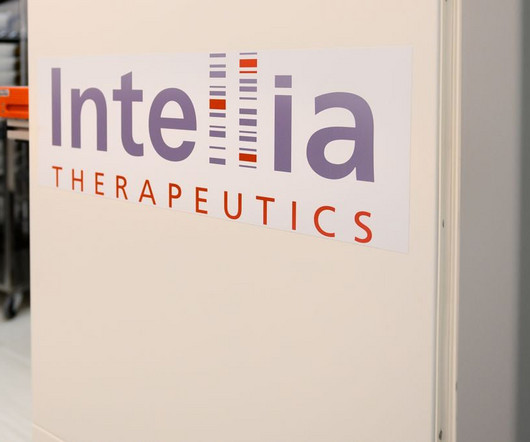
Bio Pharma Dive
OCTOBER 3, 2023
The longtime partners believe that, by combining their technologies, they can create “in vivo” genetic medicines for nervous system and muscular disorders.
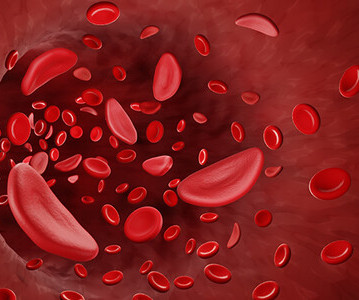
Worldwide Clinical Trials
NOVEMBER 27, 2023
Casgevy, the commercial product formerly known as exa-cel, is administered by taking stem cells out of a patient’s bone marrow and editing a gene in the cells in a laboratory, with the modified cells then infused back into the patient after conditioning treatment to prepare the bone marrow.

AuroBlog - Aurous Healthcare Clinical Trials blog
SEPTEMBER 17, 2024
We are witnessing a revolution in healthcare, driven by advances in genetics, Omics, RNA and CRISPR gene-editing technology, to deliver precision and personalised medicine, said Kiran Mazumdar-Shaw, executive chairperson, Biocon and Biocon Biologics. In […]

pharmaphorum
JANUARY 29, 2021
Cutting edge’ is, for once, a truly apt description when it comes to gene editing – both because the field is pushing medicine into areas we might never have dreamed possible, and because these technologies involve literally cutting DNA at a specific point in the genome. Zinc fingers. That would just slow the whole field down.
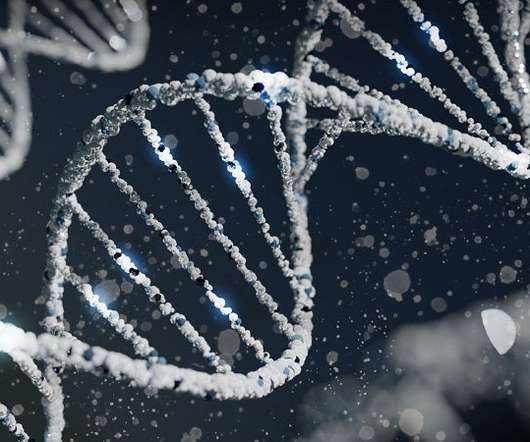
Pharmaceutical Technology
JANUARY 10, 2023
Asklepios BioPharmaceutical has entered a research partnership and option agreement with ReCode Therapeutics for exploring its single-vector gene-editing platform. The new solution will enable complete gene insertion by delivering the gene-editing tool and DNA as mixed cargo to desired targets in one LNP.

Pharmaceutical Technology
FEBRUARY 23, 2023
Moderna has entered a strategic research and development partnership with ElevateBio’s Life Edit Therapeutics to discover and develop new in-vivo mRNA gene editing therapies. The post Moderna partners with Life Edit for mRNA gene editing therapies appeared first on Pharmaceutical Technology.

STAT News
FEBRUARY 22, 2023
Moderna is aiming to build a gene editing franchise powered by some of the same technologies used in its COVID-19 vaccines. The Cambridge biotech company announced Wednesday that it will partner with Life Edit Therapeutics to develop potentially permanent treatments for rare genetic diseases and other conditions.

Bio Pharma Dive
FEBRUARY 28, 2024
The acquisition of Proof Diagnostics, which was formed to develop a COVID-19 test, gives Ginkgo a library of novel enzymes that can be used to make genetic medicines.

Pharmaceutical Technology
JUNE 15, 2023
Verve Therapeutics and Eli Lilly and Company have entered an exclusive research partnership to advance the former’s preclinical stage in vivo gene editing programme targeting lipoprotein(a) (Lp(a)) to treat atherosclerotic cardiovascular disease (ASCVD). The company will receive a combined upfront payment and equity investment of $60m.
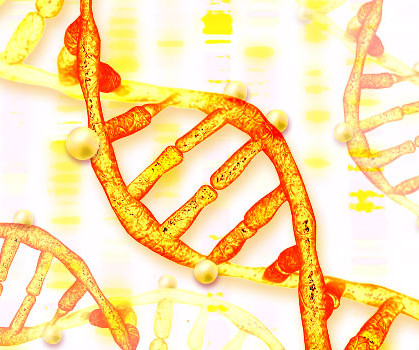
BioSpace
MARCH 24, 2024
Ubiquitous potential, possible safety advantages and the recent growth of cell and gene therapy are driving investment in a different type of genetic editing.
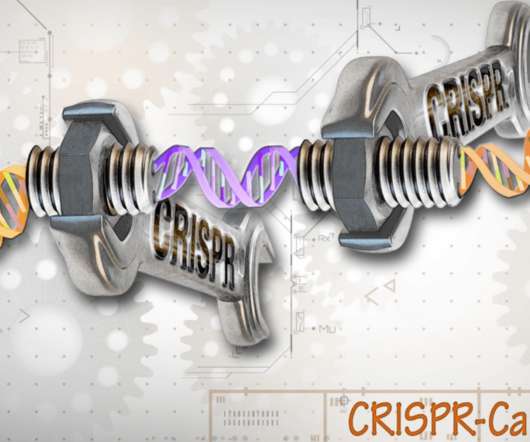
XTalks
DECEMBER 14, 2022
Expanding upon the CRISPR-Cas9 gene editing system, researchers at MIT have designed a new technique called PASTE gene editing that can cut out defective genes and replace them with new genes in a safer and more efficient way. The PASTE gene editing technique was recently published in Nature Biotechnology.
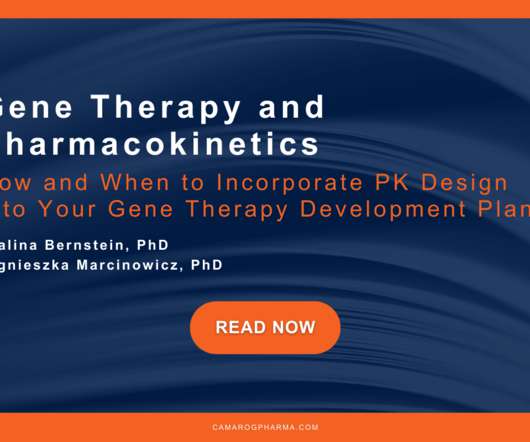
Camargo
JULY 27, 2021
It is a comprehensive term which encompasses a large variety of therapy products including viral and bacterial vectors, plasmid DNA, human gene editing technology, and patient-specific cellular gene therapy. Additionally, gene editing allows us either to remove or to modify harmful genes.
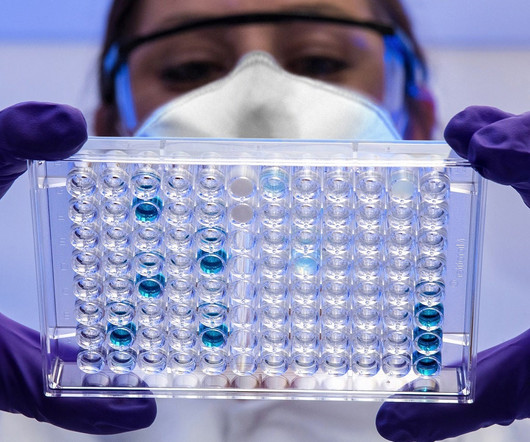
Pharmaceutical Technology
MARCH 28, 2023
Under the terms of the deal, the company will receive non-exclusive rights to CRISPR/Cas9, a gene-editing technology of CRISPR Therapeutics, for the development of potentially curative T1D cell therapies. The gene-editing technology allows for precise, directed changes to genomic DNA.
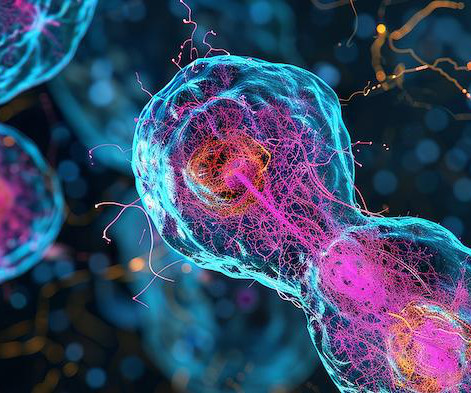
Worldwide Clinical Trials
NOVEMBER 12, 2024
CGTs address rare and complex diseases at the root cause with increasing use in cancer, genetic disorders, and autoimmune diseases. Cell therapy, specifically, is changing our narrative around chronic and lethal conditions.
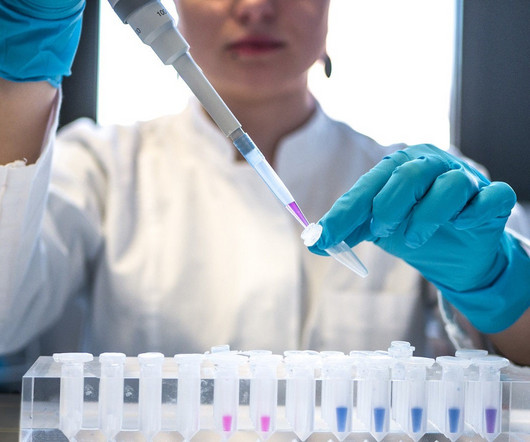
Pharmaceutical Technology
MAY 25, 2023
ElevateBio has raised $401m in a Series D financing round for advancing its technology platforms to expedite the design, production and development of cell and gene therapies. The technology platforms include the Life Edit gene editing platform, an RNA, cell, protein, vector engineering and induced pluripotent stem cells (iPSCs) platform.

pharmaphorum
FEBRUARY 15, 2024
Gene-editing biotech Prime Medicine has priced its IPO, hoping to raise $140m to advance its pipeline of one-shot therapies for severe genetic disorders.
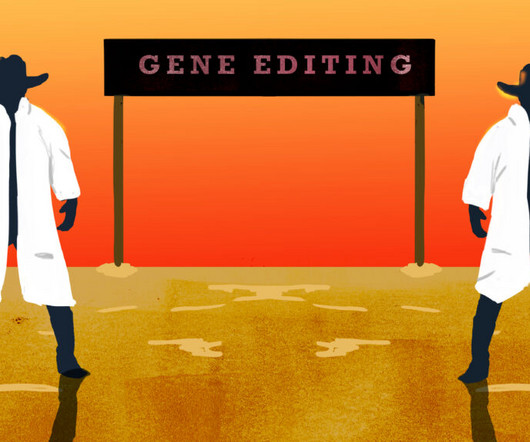
STAT News
MARCH 1, 2023
Tessera Therapeutics chief scientist Michael Holmes had just finished presenting a much-anticipated peek at a technology the company had previously said could “ revolutionize genetic medicine ” and “cure nearly any genetic disease.”

Medical Xpress
MARCH 17, 2023
The study, to be published March 17 in the Journal of Experimental Medicine, uses a new, highly versatile form of CRISPR-based genome editing with the potential to correct a wide variety of disease-causing genetic mutations.

BioSpace
MARCH 21, 2024
Tegoprubart, Eledon Pharmaceuticals’ experimental anti-CD40L antibody, was part of the immunosuppressive treatment regimen used following the first-ever transplant of a kidney from a genetically modified pig to a human.

pharmaphorum
MARCH 27, 2025
In a xenotransplant milestone, scientists have carried out the first transplant of a genetically modified pig liver into a brain-dead human patient

Scienmag
MAY 2, 2022
WINSTON-SALEM, NC – May 2, 2022 — Wake Forest Institute for Regenerative Medicine (WFIRM) scientists working on CRISPR/Cas9-mediated gene editing technology have developed a method to increase efficiency of editing while minimizing DNA deletion sizes, a key step toward developing gene editing therapies to treat genetic diseases.
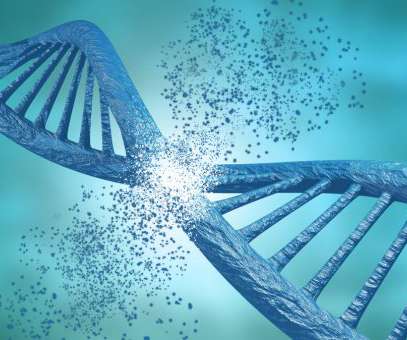
pharmaphorum
SEPTEMBER 28, 2022
Vertex Pharma and partner CRISPR Therapeutics will start a rolling marketing application in the US for their gene-editing drug for sickle cell disease (SCD) and beta thalassaemia later this year. The time places exa-cel in pole position to become the first drug developed based on CRISPR/Cas9 gene-editing technology to reach the market.

Pharmaceutical Technology
AUGUST 24, 2022
A lead product candidate of the company, GTP-506 is a single-dose gene editing therapy. The ARCUS nuclease vector (GTP-506A) targets gene editing in the PCSK9 gene locus that is well characterised, while the therapeutic donor vector (GTP-506D) introduces the OTC gene to provide the required genetic correction.

pharmaphorum
OCTOBER 8, 2020
Scribe Therapeutics, a start-up focusing on gene-editing using CRISPR/Cas9, has burst onto the biotech scene with a $415 million deal with Biogen. The post Biogen teams up with gene-editing startup Scribe on ALS programme appeared first on. Jennifer Doudna.
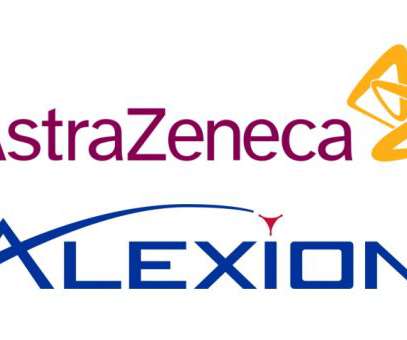
pharmaphorum
OCTOBER 4, 2022
AstraZeneca’s rare disease firm Alexion is set to expand its genomic medicine portfolio with the acquisition of gene editing specialist LogicBio Therapeutics, in a deal worth approximately $68 million. The post AstraZeneca pays record 660% premium for gene editing company LogicBio appeared first on.
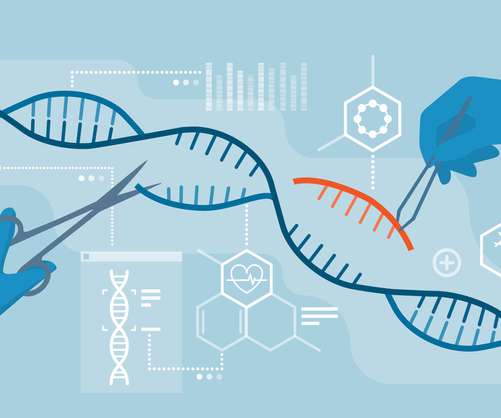
BioPharma Reporter
OCTOBER 22, 2020
The use of CRISPR, the genetic scissors that allow scientists to edit the instruction manual of life, DNA, has drawn massive global attention over the last several years.
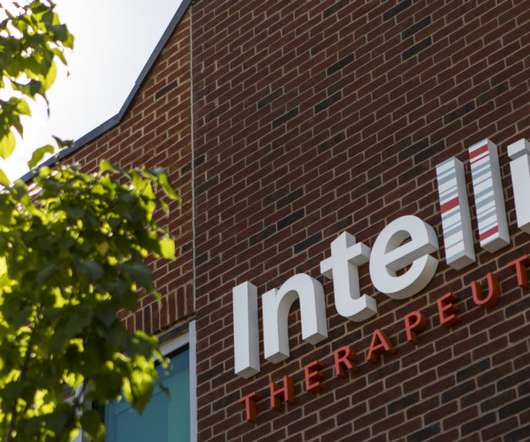
STAT News
SEPTEMBER 16, 2022
Intellia Therapeutics said Friday the first six patients to receive its CRISPR-based treatment for a genetic swelling disorder have safely had small, corrective changes made to dysfunctional DNA inside their liver cells.

pharmaphorum
FEBRUARY 15, 2024
Gene-editing biotech Prime Medicine has priced an initial public offering, hoping to raise $140 million to advance its pipeline of one-shot therapies for severe genetic disorders. The Cambridge, Massachusetts-based company is offering 19.2 million shares at $6.25
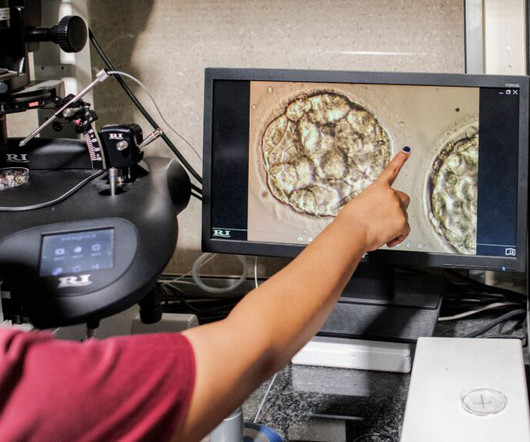
STAT News
MARCH 9, 2023
LONDON — Scientists at this year’s genome editing summit spent Tuesday showing the world just how far CRISPR -based medicines for treating human diseases have come in a decade.

BioPharma Reporter
FEBRUARY 23, 2023
The messenger RNA (mRNA) specialist Moderna has teamed up with ElevateBio-owned Life Edit Therapeutics to develop gene editing therapies that are delivered into patients in vivo.
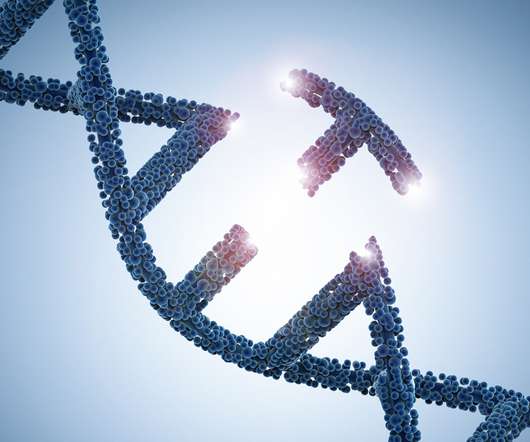
pharmaphorum
AUGUST 24, 2021
Vertex Pharma has ramped up its involvement in gene-editing medicines for the third time in a matter of months, agreeing a partnership with CRISPR specialist Arbor Biotechnologies that could be worth up to $1.2 If approved, it could mount a challenge to bluebird bio’s gene therapy Zynteglo, which is already approved in Europe.

Scienmag
AUGUST 18, 2020
Credit: Rasgon Lab, Penn State Researchers who developed an improved method of gene editing for the study of arthropods will expand the technology for use in vertebrate species such as mice, fish and birds after receiving new funding from the National Science Foundation.

STAT News
MARCH 3, 2023
Continue to STAT+ to read the full story…

pharmaphorum
OCTOBER 13, 2022
Gene therapies and research into them have grown immensely in recent years, offering more novel tools in regenerative medicine to fight disease, including rare diseases and genetic disorders. Beta-thalassemia is a rare blood disorder caused by a genetic defect in hemoglobin. Novartis also recently inked an up-to $1.5

STAT News
NOVEMBER 29, 2022
He Jiankui, the Chinese biophysicist who created the first gene-edited children , had been quiet since completing a three-year prison sentence in April, leaving many to wonder whether he had plans to return to scientific research. Earlier this month, we got his answer.

Scienmag
OCTOBER 21, 2020
–Genome editing of human embryos represents one of the most contentious potential scientific applications today. But what if geneticists could sidestep the controversy by editing sperm and eggs instead? Credit: Photo by L. Brian Stauffer CHAMPAIGN, Ill.

Scienmag
JANUARY 12, 2021
Martins Scientists have used gene-editing advances to achieve a tenfold increase in the production of super-bug targeting formicamycin antibiotics. Credit: Dr Dino J. The John Innes Centre researchers used the technology to create a new strain of Streptomyces formicae bacteria which over-produces the medically promising molecules.
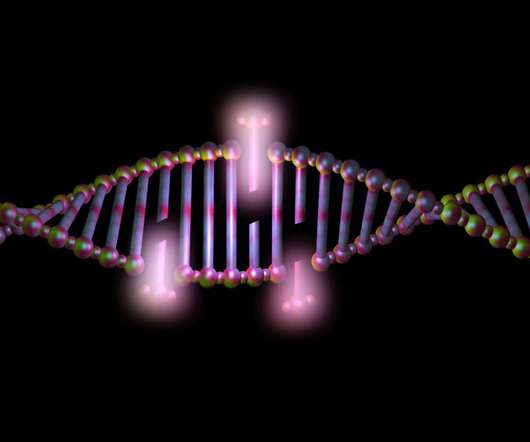
STAT News
SEPTEMBER 20, 2022
A new CRISPR startup — backed by some big names in venture capital — is planning to develop gene-editing treatments that can insert a genetic sequence of any length, at any location in the DNA strand, according to industry insiders and documents.

Pharmaceutical Technology
FEBRUARY 13, 2023
Gene therapies are an attractive way of targeting the underlying genetic mutations, but traditional approaches cannot be used while targeting mutations for Dravet Syndrome, forcing researchers to develop new ways. Meanwhile, others are researching the link between gene variation and different responses to treatments.

BioSpace
JULY 12, 2021
The company's technology aims to precisely search out genetic mutations at their precise genome location, limiting concerns about toxicities or unwanted cellular changes.
Expert insights. Personalized for you.
We have resent the email to
Are you sure you want to cancel your subscriptions?


Let's personalize your content